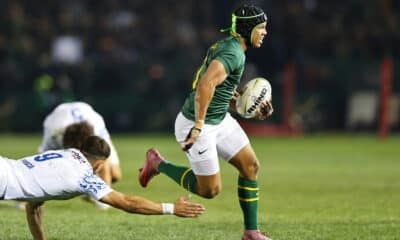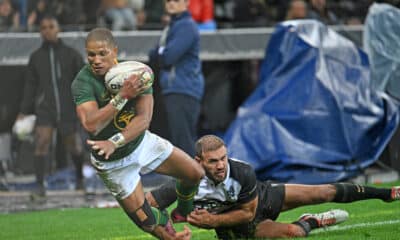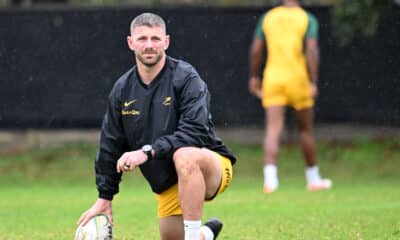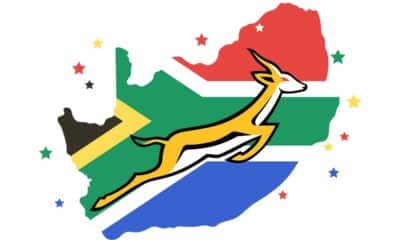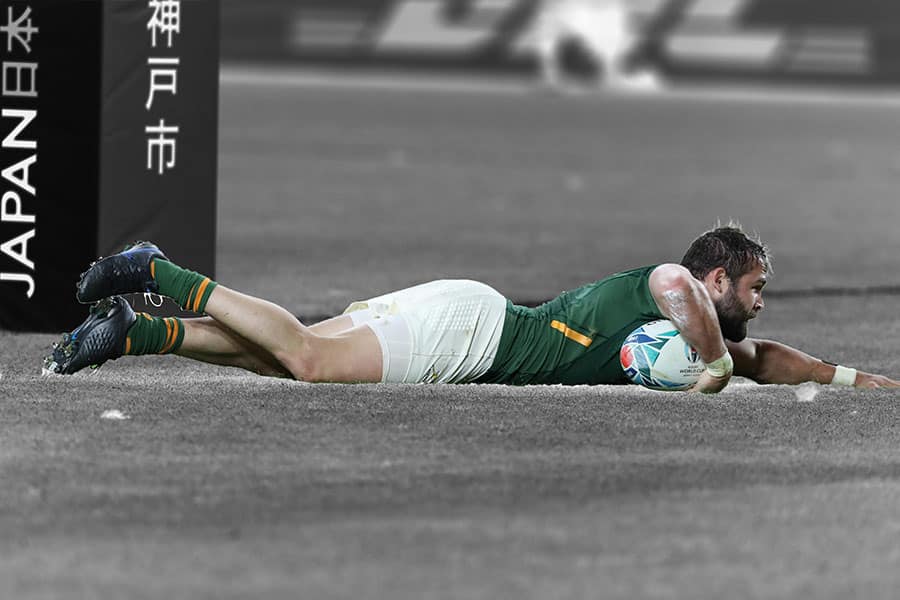
09 October 2019, by: Quintin Van Jaarsveld
RWC: Boks find attacking groove at perfect time
The attacking flow the Springboks found in the 35 minutes that mattered most in Tuesday’s Rugby World Cup clash against Canada in Kobe came at the perfect time as they head into the play-offs, writes Quintin van Jaarsveld.
South Africa had scored 17 tries heading into their final Pool B assignment at Kobe Misaki Stadium, a stat that suggests they’re a tornado-like force with ball-in-hand. The reality, however, is that the offence largely idled against the All Blacks, Namibia and Italy, the backline failing to get out of first gear and fully punish sides for the pack’s physical dominance.
Aside from the electrifying Cheslin Kolbe, the Springbok backs were generally stale, predictable and collectively sans rhythm. Rassie Erasmus acknowledged the stuttering attack after the 49-3 win over Namibia in Shizuoka, in which his charges scored nine tries, saying, “We will work on attack, but we know we are really good at being physical. It doesn’t matter if it’s ugly or not, as long as we can get over the line.”
Tuesday’s mission for the men in Green and Gold, therefore, was two-fold – secure the expected win to cement a place in the quarterfinals and find that sought-after attacking edge. The Boks ticked both of those boxes in the 66-7 win, especially in the first half, celebrating South Africa’s 500th Test, dating back to since 1891, by playing champagne rugby.
Admittedly, it got sloppy in the second half, but when it was still a true contest, prior to Canada lock Josh Larson’s red card for a dangerous cleanout on Thomas du Toit five minutes before half-time, the Springboks were on fire. Granted, the level of the opposition opened a flood of attacking opportunities, but the accuracy and execution of the Springboks would’ve unlocked even the best of defences.
In the 35 minutes that mattered, when it was 15 on 15, the Springboks scored six tries. Five of those came in the first quarter, two of which – Cobus Reinach’s brilliant solo effort and the scrumhalf’s third score after a beautiful crosskick by Elton Jantjies and good touches from Warrick Gelant and Damian de Allende – are try of the tournament contenders.
It was fast and furious stuff from the kick-off, a real signal of intent, and it took just two minutes for De Allende to go over for the first of his team’s 10 tries. The Springboks were clinical and ruthless, establishing quick ball and liquid-like fluidity thanks to exquisite handling from the forwards and backs alike.
Vitally, they had variation – the main missing ingredient in the South African rugby recipe. There was seamless phase play, great offloads – from RG Snyman in particular (Kwagga Smith’s ball to put Sbu Nkosi over in the fifth minute was also memorable) – moments of magic from Reinach and Elton Jantjies and set-piece surges, like Gelant’s try from a scrum in the 27th minute.
The numbers, again – for the first 35 minutes rather than the full 80 – make for impressive reading. In 53 runs, the Springboks scored six tries as mentioned, got over the gainline 20 times (the only ‘average’ stat), beat 21 shell-shocked defenders, made 11 clean breaks and 333 metres. The ruthless Springboks also created a bit of history during this purple patch, with Reinach’s 11-minute treble being the fastest hat-trick in World Cup history.
While few first-choice players were on the park, the groove found and momentum gained in the 59-point win will benefit the entire squad ahead of their looming quarterfinal showdown against either host’s Japan, Ireland or Scotland.
MORE RUGBY

















